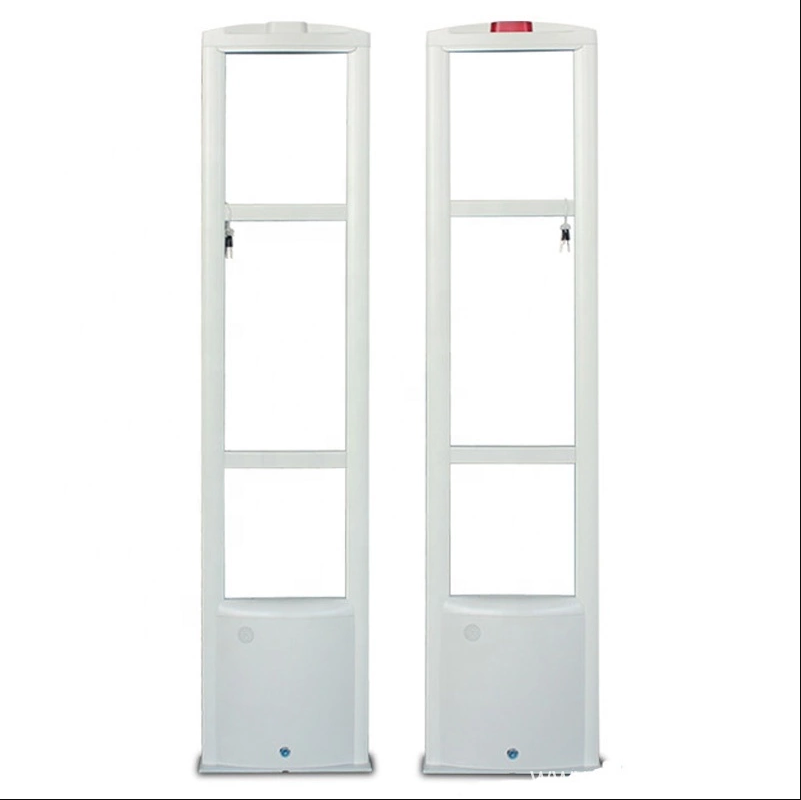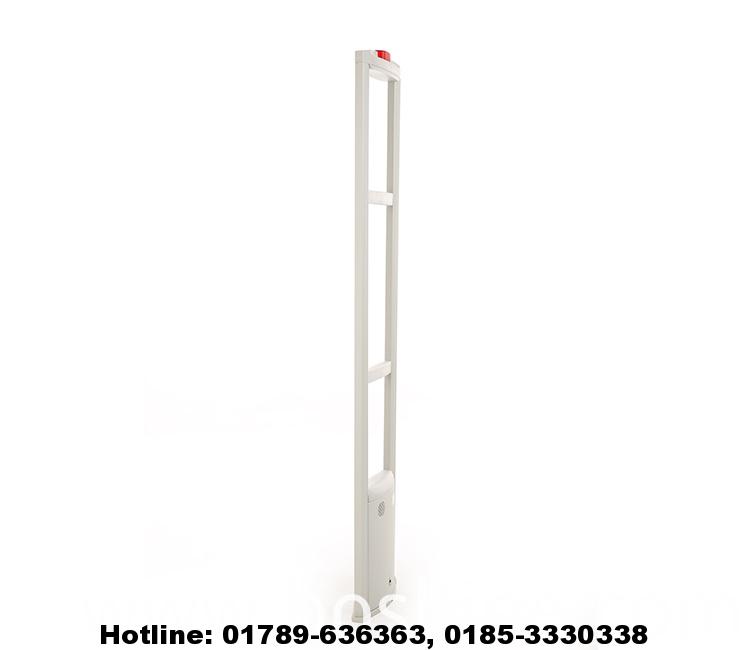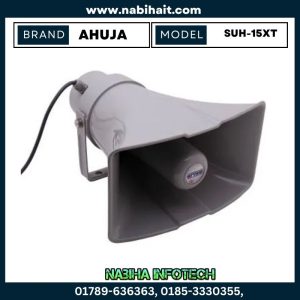Ahuja SCM-20XT 15-Watts Indoor/Outdoor Column Speaker
Input Power 15W RMS, 23W Max. Power Taps 15/10/5/2.5W Voltage 100V Frequency Response 150-10,000Hz SPL at 1kHz 92dB/1W/1m Speakers 2 × 152.4 mm (6”) × 101.6 mm (4”) Dimensions W150× H465× D130 mm Weight 2.70kg ৳ 5,000.00Ahuja SUH-15XT Outdoor Horn Speaker
BRAND: Ahuja
– MODEL: SUH 15XT
– INPUT POWER: 15W RMS/23W Max.
– POWER TAPS: 15/10/5/2.5W
– IMPEDANCE: 670/1k/2k/4k?
– FREQUENCE RESPONSE: 275-7,000Hz
– SPL at 1kHz 106dB/1W/1m, 118dB/15W/1m
– DIMENSIONS (L293) mm; 250 x 145 x 90mm (DxHxT)
– WEIGHT; 1.89kgs(3.9lbs.)৳ 3,700.00Ahuja SUH-15XT Outdoor Horn Speaker
৳ 3,700.00Ahuja CTP-10DX Unidirectional Condenser Tie-Clip Microphone
- Brand: Ahuja
- Type: Lavaliers
- Purpose: Interviews and Recordings
- Model Name: CTP-10DX
- Miniature unidirectional electret condenser lavalier type microphone for lectures, interviews, religious places, recordings etc.
৳ 3,500.00Ahuja UTP-30 Unidirectional Condenser Tie-Clip Microphone
- Brand: Ahuja
- Type: Lavaliers
- Purpose: Interviews and Recordings
- Model Name: UTP-30
- Miniature unidirectional electret condenser lavalier type microphone for lectures, interviews, religious places, recordings etc.
৳ 3,500.00Ahuja AUD-98XLR Unidirectional Dynamic PA Applications Microphone
- Brand: Ahuja
- Model: AUD-98XLR
- High output Neodymium cartridge. Excellent intelligibility & wide frequency response. Attractive appearance.
- Supplied with quick detachable holder with 3-pin professional XLR connector & 6 mtrs. twin core shielded low noise cable.
৳ 3,500.00Ahuja CMC-5100 Chairman Unit For Conference System
- Microphone: -63dBV/µbar (7.5mV/Pa)
- Current Consumption: < 50mA Max.
- Mic Auto Switch-Off Time:75 seconds approx.
- Input: Line
- Output: Line, Headphone,
- Speaker Max Input: 300mW
৳ 15,800.00EAS System AM Security Sensor Anti-theft Gate in Uttara, Dhaka | Best Price
- Product Name: am 58khz gateway system
- Frequency: 58khz
- Color: Grey/white/customized
- Material: Abs
- Size: 143*37*9cm
- Detection Range: 80~200cm
- Electronic Board: DSP Board
- Function: Anti-Theft EAS System Antenna
Call for PriceZKTeco K50A Fingerprint Time Attendance Terminal
zkteco k50A
• Elegant and modern design.
• 2.8-inch color TFT LCD screen.
• TCP / IP interface and USB-Host port.
• Includes lite software for assistance management.
• The attendance report is exported in Excel format using a USB memory.
• Equipped with backup battery power. Multiple languages.
• Simple administration and scalability৳ 7,500.00ZKTeco F18 Fingerprint Standalone Access Control and Time Attendance Price in Bangladesh
ZKTeco F18 Bangladesh
- Price: ৳ 10,500.00
৳ 12,500.00 - Regular Price: 12,500
- Stores Fingerprint 3000 templates, 5,000 CARDS and 1,00,000 transactions
- 1 touch a-second user recognition
- Fingerprint reader with durable and highly accurate ZK optical sensor
- Warranty: One Year
৳ 10,500.00৳ 12,500.00ZKTeco F18 Fingerprint Standalone Access Control and Time Attendance Price in Bangladesh
৳ 10,500.00৳ 12,500.00- Price: ৳ 10,500.00
ZKTeco uFace 302 Face Detection Attendance Machine
• 3,000 face and 4,000 fingerprint templates
• Multi-languages
• High verification speed
• Advanced and user-friendly UI
• Chip encryption for firmware protection
• Optional built-in battery backup providing approximately 4 hours of continuous operation
• Easy to extend functions and customize client’s requirements
• One face template is registered for one user only
• Able to detect whether the face is an actual face or a photo, enhancing the security level of verification৳ 29,000.00Ahuja SSA-5000EM 500 WATTS High Wattage PA Mixer Amplifier
- Ahuja SSA-5000EM Price in BD
- 7 Mic & 2 Aux Inputs.
- Preamplifier and Line Output for connecting to a Booster Amplifier and for recording the programme.
- Line Input for connecting the output from any external mixer or permitting SSA-5000EM to be used as a Booster Power Amplifier.
- Resettable circuit breaker for protection against overload and short circuit.
- Instant transfer to DC power
- Box Speaker/Driver Unit selector switch. Bass boost defeated at Driver Unit position for safer operation of driver units.
৳ 55,000.00Ahuja SSB-120 Medium Power Amplifier
Ahuja SSB120 Bangladesh
120 WATTS
AC & 12V DC Operation
- 5 Mic & 2 Aux Inputs.
- Line Ouput for connecting to a Booster Amplifier and Preamplifier Output for recording the programme.
- Cut type Bass & Treble controls.
- Instant transfer to DC power (Car Battery) if AC power fails.
৳ 22,000.00Ahuja SSB-120 Medium Power Amplifier
৳ 22,000.00
Epowsens
Established in 2005, Epowsens, a leading enterprise focuses on RF/AM soft label, RF/AM hard tag, RFID inlay/label, EAS/RFID system, etc. With over 10 years of experience, hundreds of employees and 1.2 billion pieces of annual production quantity, our products has cover a large share of the worldwide market. Our company’s amount of annual exports is 5-7 millions USD.
The core of our service is responsibility. We keep it as our culture, making our industry protects the retailers in the world.
EAS (Electronic Article Surveillance)–A security system for preventing theft in retail stores that uses disposable RF /AM label or reusable RF/AM hard tags attached to the merchandise. An alarm is triggered when walking through detection antenna gate at the store exit if a disposable tag was not deactivated or a reusable tag was not removed at the checkout counter.

epowsens Bangladesh
UHF Inlay HF Inlay RFID UHF label RFID HF Label RFID Tag
RF Label Hard Tag Bottle Tag Ink Tag Detacher Am Label Deactivtor Eas System Safer Pin Lanyard Alarm Tag

EAS anti-theft alarm security system Price in Bangladesh

Epowsens Retail eas rf alarm antenna anti-theft security systems in Uttara, Dhaka-Bangladesh

Retail eas rf alarm antenna anti-theft security systems in Uttara, Dhaka



How EAS Systems Working?
How Anti-shoplifting Devices Work? How EAS devices can detect security tags and security labels?
The most effective anti-shoplifting tools these days are tag-and-alarm systems, better known as electronic article surveillance (EAS) systems. Separately, these are good options. Used together, experts say, they’re almost unbeatable. EAS is a technology used to identify articles as they pass through a gated area in a store. This identification is used to alert someone that unauthorized removal of items is being attempted. According to the Association of Automated Identification Manufacturers, over 800,000 EAS systems have been installed worldwide, primarily in the retail arena. EAS systems are useful anywhere there is an opportunity for theft of items of any size. Using an EAS system enables the retailer to display popular items on the floor, where they can be seen, rather than putting them in locked cases or behind the counter.
New EAS technologies are being produced — not only to reduce shoplifting — but also to help increase sales, lower labor costs, speed inventory, improve stockroom logistics and, one day, to replace inventory record-keeping. But for now, we’ll stick to the role of EAS in battling shoplifting in your imaginary store!
Three types of EAS systems dominate the retail industry. In each case, an EAS tag or label is attached to an item. The tag is then deactivated, or taken from an active state where it will alarm an EAS system to an inactive state where it will not flag the alarm. If the tag is a hard, reusable tag, a detacher is used to remove it when a customer purchases the item it’s attached to. If it’s a disposable, paper tag, it can be deactivated by swiping it over a pad or with a handheld scanner that “tells” the tag it’s been authorized to leave the store. If the item has not been deactivated or detached by the clerk, when it is carried through the gates, an alarm will sound.
The use of EAS systems does not completely eliminate shoplifting. However, experts say, theft can be reduced by 60 percent or more when a reliable system is used. Even when a shoplifter manages to leave the store with a tagged item, the tag still must be removed — something that is no longer as easy as it once was. For example, some EAS tags contain special ink capsules, which will damage the stolen item when forcibly, and illegally, removed. (This type of device is known in the industry as benefit denial — we’ll discuss it more later!). Other popular EAS components today include source tagging, whereby an inexpensive label is integrated into the product or its packaging by the manufacturer.
The type of EAS system dictates how wide the exit/entrance aisle may be, and the physics of a particular EAS tag and technology determines which frequency range is used to create a surveillance area. EAS systems range from very low frequencies through the radio frequency range (see How Radio Scanners Work). These EAS systems operate on different principles, are not compatible and have specific benefits and disadvantages. (That’s why the Consumer Products Manufacturers Association, Inc. is encouraging a “tower-centric” EAS approach that can “read” multiple tag technologies rather than the “tag-centric” models that exist today.












